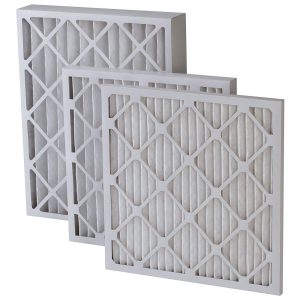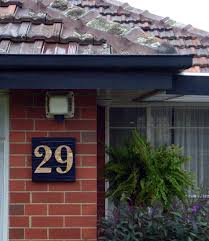December 17th, 2018 by freemanrealty
As we slide into December, it’s easy to lull ourselves into a kind of winter hibernation. In an effort to keep our homes warm and our spirits bright as we brave the cold, dark days of winter, we light fires or turn up the thermostat a few degrees, sip hot cocoa and binge on episodes of our favourite Netflix series.
But believe it or not, December is about more than vegetating and the holidays. It’s also the perfect time to check up on your home’s winter maintenance. Let’s take a look at some DIY tasks around the home that are best left to that final month of the year.
Furnace air filter

Yes, they need replacing, perhaps more often than you are currently doing. In fact, home maintenance experts claim they should be replaced somewhere between every one and three months to keep a clean flow of air in your house. Try to replace them with a high-quality filter as they will do a better job of removing mold, pollen and other particles from your indoor air.
Fire & Gas

Make sure your smoke alarms and carbon monoxide detectors are in good working order. This is the time of year when the most house fires occur due to people spending more time inside their homes. They’re looking for warmth from their fireplaces and ambiance from Christmas tree lights and candles but if not properly used, these items can pose a risk. Also ensure that your fire extinguishers are fully charged and still valid.
Insulate your attic
This is a mind-numbingly tedious job but super important to your comfort and wallet when trying to prevent warm air from escaping your home. Most homes should be outfitted with attic insulation of some kind. And it is possible to simply add more if you think yours is not doing the job. Before doing so make sure your current insulation is not damaged due to mold, water or unwelcome critters. If so, it should be replaced.
Drain garden hoses
Before the GTA descends into a deep freeze, now is a good time to disconnect all garden hoses. Water inside a hose naturally expands when frozen and can split your hose. While you’re at it, it’s also wise to drain and protect outdoor water taps to prevent them from freezing as well.
Sources: www.todayshomeowner.com, www.lowes.ca,
Posted in Buying and Selling a Home, Featured Articles, Lifestyle Realm, Uncategorized | Comments Off on TLC for your Home in December
December 10th, 2018 by freemanrealty
Saving up for a down payment on your first home can seem like a goliath task these days. With the average house price in the GTA fluttering around $700,000, the notion of making a dent in your savings on a down payment may seem daunting, if not insurmountable.
If you’ve already been saving your nickels for retirement, there is some help to be had thanks to a federal government program known as the Home Buyers’ Plan (HBP). The HBP lets first-time home buyers withdraw up to $25,000 from an RRSP to put toward the down payment on a house. Since a couple can each withdraw funds they can pool their assets and withdraw as much as $50,000. How that benefits first-time home buyers is that the funds withdrawn from the RRSP are not immediately taxed as long as you meet the deadline to return the funds within a specified time.

Do you qualify?
You do if you or your partner did not own a home that was your principal residence in the four calendar years prior to purchasing a house with an HBP.
Pay back
It’s an unfortunate reality but under this Canada Revenue Agency program, the RRSP funds have to be paid back within 15 years. The good news is that you don’t have to start paying back your RRSP until the second calendar year after the withdrawal. So if you used the HBP in 2018, you have until 2020 to start paying back your RRSP.
No tax benefit
Because you are paying back what you originally contributed to an RRSP, there is no tax relief as you would have experienced the first time around.
Expectations
You are expected to make payments every year under the HBP and the repayment expectations are far from onerous. Annual repayments are 1/15 th of the withdrawal total so if you borrowed $15,000, your annual repayment would be $1,000 per year for 15 years.
If, for some reason, you can’t meet the yearly repayment or can only manage a part of it, then the payment or the part that you couldn’t pay is added to your taxable income.
The HBP has been in place since 1992 and though some critics say it should be scrapped because people need to save for retirement, others say its absence would harm the housing market.
Posted in Annex Real Estate Toronto, Buying and Selling a Home, Condominum, Featured Articles, Freeman Magazine, Toronto Real Estate News, Uncategorized | Comments Off on Help for First-time Home Buyers
November 26th, 2018 by freemanrealty
You know the old saying that if something seems too good to be true it probably is? Well, the same principle kind of applies when it comes to condo fees.
There are no quick fixes or mystical remedies that will magically help you reduce your condo fees. That said, there are measures you can take that may help in the medium and long run. Your persistence and stick-to-itiveness will be put to the test and may eventually pay off. But know this: while you can put certain measures in place that may relieve the burden of mounting condo fees, the chances of reducing or rolling them back is pretty much slim to none.
So what is a condo owner to do? Here are a few suggestions:

Toronto, Ontario, Canada
Get involved
To ensure reasonable condo fees, you may want to have a say in how your condo is operating. Do you prefer the notion of building a reserve fund for those emergency repairs that are sure to one day happen? Or are you more comfortable keeping fees lower and only raising them under duress? By joining the condo board and attending meetings you will learn why your condo fees are what they are. Only once you see where your fees are going can you actually make some headway about changing direction. Do you think your condo corporation is being over charged for certain services? Being a member of the condo board means your voice will be heard.
Do your homework
It’s easy to get sucked in by the dulcet tones of salespeople who flaunt fabulous party rooms, fun-filled hot tubs and a fitness centre? But know that these amenities come at a cost. According to the National Bank, the average condo fee in the GTA averages 65 cents a square foot. On a 600 square foot condo that would be $390 per month and for a 1,000 square foot unit, your condo fee would hit $650.
It’s also a good idea to investigate condo fee increases at other buildings by the same developer. Fees undoubtedly vary based on the building’s location, amenities, age and the size of the units so comparisons are sometimes difficult to ascertain. By scrutinizing the developer’s history you will determine if the builder has earned a positive or negative reputation when it comes to managing condo fees and the like.
Reserve fund
You need to find out about the health of the reserve fund of the condo you’re interested in. Is there a good chunk of savings for major work or an emergency repair or has the well run dry? Find out what major work has taken place and what is slated to take place in the future. A well-run condo corporation should be able to provide this information.
Sources: www.torontostar.com, www.ideas.nationalbank.ca
Posted in Annex Real Estate Toronto, Buying and Selling a Home, Condominum, Featured Articles, Freeman Magazine, Lifestyle Realm, Recently Sold, Toronto Market News, Uncategorized | Comments Off on What to do about Rising Condo Fees
November 19th, 2018 by freemanrealty
There is so much to learn about buying a home, and let’s face it, dry and boring finances can easily be cast aside as you explore the features of HVAC systems, paint chip shades and new schools for the kids.
But the type of mortgage you choose is an important step forward in how to properly finance your future. Let’s take a look at the difference between a closed and open mortgage.

Closed
These types of mortgages are appealing because the interest rate is always lower than an open mortgage. They also offer longer terms as well. If you’re looking to save money on your monthly loan payments this may be your best bet. Usually, those who select a closed mortgage are homeowners whose income is relatively set. Borrowers who pick this type do not plan on paying off their mortgage in the short term.
This is not the type of mortgage you would take if you were expecting a big inheritance or other significant increase in your income. The reason for this is because you will face a penalty if you try to pay off a portion of or your entire mortgage. And the penalties can be high. If you can, you’re best to wait until the renewal term of your mortgage comes due before making any changes.
To be fair, most lending institutions are not as severe as they once were when it comes to paying off or paying down your mortgage. Most permit some kind of allowance that lets you pay off a certain portion or percentage of your mortgage without penalty.
Open
This type of mortgage offers a higher interest rate and shorter borrowing terms but it has a kind of flexibility that is important to some borrowers. The beauty of this kind of mortgage centres on the fact that it lets the borrower pay back the mortgage or part of it without penalty. An open mortgage is perfect for those who plan to sell their house or who are soon anticipating a significant infusion of money and planning to pay down their mortgage debt with it.
These mortgage rates tend to be variable, which is another benefit. You can move into another mortgage product at any time if you decide a variable open mortgage is not suitable for you.
Sources: www.creditfinanceplus.com, www.youngandthrifty.ca, www.lowestrates.ca
Posted in Annex Real Estate Toronto, Buying and Selling a Home, Condominum, Featured Articles, Freeman Magazine, Lifestyle Realm, Toronto Real Estate News, Uncategorized | Comments Off on Mortgages: Closed vs. Open
November 12th, 2018 by freemanrealty
November may seem like a kind of nothing month when it comes to tending to your lawn, gardens and flower beds. It’s time to hunker down for a frosty Canadian winter so why not put off worrying about the great outdoors until the arrival of warmer temperatures next spring?
That simply won’t work. Even though the signs of winter are everywhere there are a few finishing touches we need to tend to in order to keep our properties if not looking great, at least presentable.
Lawns

They take up our biggest outdoor space and also a lot of time, money and effort to maintain. Don’t neglect them now. It’s a good idea to fertilize your lawn in November. Try an organic fertilizer or consider making your own. Using synthetic fertilizers has detrimental effects on our environment, causing the depletion of soil nutrients, air pollution and chemical run-off.
You’ll need to cut your grass one last time this month before the snow flies. Clip at its normal height but be sure to remove all grass clippings with a rake or use a mulching mower. It’s also okay to rake the clippings onto flower beds.
If you’re feeling super handy-dandy you may want to service your lawn mower by cleaning, sharpening and oiling its blades. While you’re at it, change the oil and empty the machine of all gas before storing it away.
Protection
Wind, sun and cold can wreak havoc on certain evergreens and new plants. Wrap them in burlap to protect them from the elements. Also consider wrapping screening around the trunks of fruit trees to protect them from small animals. Most rose bushes require mulch so be sure to cover them with a good layer of leaves or other mulch product.
Fallen leaves

You’ll save money if you use your leaves as mulch for your flower beds or as material with which to build your compost.
Water
Don’t forget to give your evergreens a good strong soaking before winter snowfalls. According to Mark Cullen, wet roots mean evergreens will winter better. It’s not a bad idea to continue watering trees and shrubs until it freezes also. And remember to turn off your outdoor water faucets and drain and store your garden hoses.
Dream
As you put the final touches on your lawn and garden for the year, think about your likes and dislikes. Begin formulating a plan for next spring. What will you move? What will you get rid of? And, most notably, what would like to add?
Sources: www.greenhome.com, www.torontostar.com,
Posted in Annex Real Estate Toronto, Buying and Selling a Home, Featured Articles, Freeman Magazine, Lifestyle Realm, Recently Sold, Uncategorized | Comments Off on November Tips for Lawn & Garden
November 5th, 2018 by freemanrealty
Next to January and February, November might just be one of the year’s most hated months.
Its drab and rainy weather does little to endear us, as does its call to winter with cooler temperatures, unwelcome snow and dreaded ice. There aren’t even any terrific holidays this month to buoy us out of our seasonal-related misery. And for some of us, it’s a time to start stressing about the coming holiday season and all the excessive consumption that entails.
But November is not all doom and gloom. When it comes to real estate, in fact, it may be one of the best months to sell your house. Here’s why:
Quick sale

If you’re looking for a transaction that is fast November is a good time to list your property. People who are looking now are likely more serious and motivated. As a result, they tend to have more urgency so a quick sale that can get you out of your current home before, say, Christmas might just be possible. Know this: if buyers are trudging through snow, ice and generally crummy weather conditions, they mean business.
You’re an introvert
You don’t really like people very much so the prospect of having hundreds of potential buyers traipsing through your door is enough to send you over the edge. Selling your home in November definitely means you’ll have to contend with strangers but the numbers will be far less than in the spring market.
Less competition
Real estate inventory shrinks from about November to January and while that sounds like an unlikely scenario for successful sales, just the opposite is true. You may be even more so in the driver’s seat as a seller with less competition during this time. In fact, sellers might find they can get prices they could not command previously.
Seasonal splendour
Not everyone hates fall and winter. Each of those seasons showcases a unique and remarkable beauty unto its own. Don’t let cooler temps or drizzle get you down. As a seller, play up the loveliness of fall and winter. Adorn your front door with a seasonal wreath or favourite decoration. Let your garden spotlight the charm of the season with fall and winter blossoms and the changing colour and shapes of foliage. Your efforts will be appreciated.
Sources: www.time.com, www.ctvnews.ca,
Posted in Annex Real Estate Toronto, Buying and Selling a Home, Condominum, Featured Articles, Lifestyle Realm, Recently Sold, Toronto Real Estate News, Uncategorized | Comments Off on Good Reasons to Sell in November
October 10th, 2018 by freemanrealty
October signals thoughts of pumpkin pie, family get togethers at Thanksgiving and jaunty drives to take in nature’s beautiful fall colours.
But as realists, we all know those leaves eventually make their way to the ground for homeowners to rake, bag and grumble about. Did you know there is a lot more to autumn leaves than meets the eye? Let’s look at a few ways we can treat our foliage more kindly than bagging it up for the curbside. And just maybe, we can spare the environment in addition to our backs.
Compost

Leaves are our friend, especially when making rich organic fertilizer for your flower beds and gardens. Once you’ve raked up the leaves, you can shred them into smaller bits so use your lawn mower to do so. Though shredding is not absolutely mandatory, it will quicken the composting process. Add the carbon-rich leaves to materials that are rich in nitrogen such as grass clippings, coffee grounds or fruit and veggie scraps. The balance between carbon and nitrogen is key here. Mix well and be sure to turn over your compost pile every few days so can ensure a good breakdown. The compost should be ready in about two months, when it’s dark brown and earthy smelling.
Mulch
Believe it or not but leaves make for a great ingredient in mulch. Again, you’ll need to shred the leaves. Add grass clippings and wood chips. Use the mulch to top your flower beds and gardens. As mulch decomposes, you will need to eventually make more with which to replace it.
Insulate
Consider trying leaves as insulation for tender or new plants in need of protection from the ravages of winter. So the leaves don’t blow away, you’ll need to circle the plant with some kind of wire fencing that creates a protective framework. Fill it with leaves.
Leave ‘em
Yes, you can do this. But again you’re best to run your lawn mower over them as you don’t want a blanket of leaves that will smother your lawn. You may have to do this a few times. Leaving leaves on your lawn is good because it feeds your grass.
Make leaf mold
This all-leaf compost is a soil conditioner that is high in minerals and loved by gardeners. Gather leaves into plastic bags or wire bins and makes sure to keep them moist, which allows the fungus to grow.
Preserve them
Remember grade school art projects? Exactly. Leaves are a thing of beauty all by themselves. You can dry them and press them between the pages of a book. Glue them onto paper or try topping a leaf with tracing paper and then lightly pencil over top to create an imprint.
Jump in
If the mood hits you can always pile them up high and dive in. Kids and grandkids welcome.
Sources: www.ksenvironmental.com.au, www.thespruce.com,
Posted in Annex Real Estate Toronto, Featured Articles, Freeman Magazine, Lifestyle Realm, The Green Office, Uncategorized | Comments Off on Plenty of Uses for Fall Leaves
October 5th, 2018 by freemanrealty
A hard-fought and lengthy battle between the Toronto Real Estate Board (TREB) and the Competition Bureau ended in late August with a Supreme Court of Canada decision that will permit TREB’s 50,000 Ontario agents to publish home sales data on their websites.
The country’s top court refused to hear an appeal from TREB, Canada’s largest real estate board, which wanted to put an end to members posting sales numbers on websites. But the court dismissed TREB’s application.
The board wanted to keep the data in the hands of realtors as it believed publishing the numbers violated consumer privacy. However, critics say TREB was not concerned with issues of privacy but rather market control and ensuring that only realtors with access to the MLS would know the full story behind home sale prices.
What this decision means for consumers is that they will be able to have greater access to information, such as finding out the selling price of homes in certain neighbourhoods or on specific streets, the history of a house and property market trends. This will only serve to make decisions about buying and selling real estate much easier.
Before the only way to access sales data was through real agent requests. And those requests had to be made via fax, email or in person. Others would also look to online property value services or local land registry offices, which charge a fee.
Those who supported removing the restrictions say this has been the case for some time in the U.S. and rather than hinder the real estate market, some say it has actually fueled home sales there and enhanced transparency.

“Today’s decision will allow greater competition and innovation in the real estate services market in the Greater Toronto Area, and concludes seven years of litigation in the bureau’s case against TREB,” the Competition Bureau said in a news release.
“The order requires TREB to remove restrictions on its members’ access and use of real estate data – including restrictions on the display of historical listings and sale prices online through virtual office websites.”
Sources: CBC.ca, Financialpost.com
Posted in Annex Real Estate Toronto, Condominum, Featured Articles, Lifestyle Realm, Toronto Real Estate News, Uncategorized | Comments Off on More Information is Good for Consumers
September 25th, 2018 by freemanrealty
Do headaches and hassles come with owning student rental units? Of course, but there are also plenty of opportunities that might just make investing in student housing worthwhile.
Let’s look at some facts. The number of domestic and foreign students drawn to Canadian universities and colleges is not going away. In fact, it’s growing. In 2017, Canadian universities were home to more than 1.7 million students. About 370,000 international students attended universities and colleges in 2017. And they all need a place to live.

Industry insiders have long been aware of the investment opportunity in student housing. They say the Baby Boom Echo, which is essentially a second explosion of babies born thanks to the original boomer demographic, has grown up and is looking to further their education, thus making student housing a solid niche for investors.
You’ve likely at least heard of friends of friends who decided to purchase a house, townhouse or condo for their post-secondary-bound son or daughter. While that may sound a bit extravagant to some, it’s actually a clever way to invest your money. Living expenses add up quickly, whether they are on campus residences or co-op living arrangements in off-campus housing. Residence fees can range from $7,000 to as high as $15,000 or $20,000 per year. Living off campus is likely cheaper. But why not invest your money in a rental property? Your son or daughter can keep an eye on the day-to-day operations of the unit, especially if you live far away.
You can rent a 3-bedroom Toronto condo for $3,400 to $4,500 per month. While that is a lot of money to hand over each and every month, the hit is softened as it is divided among three tenants who share the condo’s common living space, which includes the kitchen, bathrooms, living room and balcony.
Another advantage to investing in student housing has to do with late or absent rent payments. When a single tenant is late paying his or her rent, the financial setback can be quite a blow for the landlord, who typically needs prompt payments in an effort to pay mortgage fees, condo fees and other bills. Withstanding the loss of rent money from one student renter is easier to swallow as the remaining renters help ease the shortfall with their rent payments.
So there are certain benefits to investing in student housing and the biggest one is that cash flow is usually higher than with single-family rentals. Of course, tenant turnover is higher so there is that to contend with. Just be sure to do your due diligence when vetting potential tenants and don’t forget to insure your property so it reflects that you are renting your space to students.
Posted in Annex Real Estate Toronto, Buying and Selling a Home, Condominum, Featured Articles, Freeman Magazine, Lifestyle Realm, Rentals, Toronto Real Estate News, Uncategorized | Comments Off on Student Housing: Your Next Investment Opportunity
September 17th, 2018 by freemanrealty
A common lament in the world of Toronto real estate is that the housing market is in short supply.
So when we hear that and then also learn that two per cent of homeowners own properties that are currently vacant, it makes you stop for a minute.
Though two per cent might sound like peanuts, it’s not. If you are looking at sales over the past 12 months, that translates to nearly 1,857 properties added to the bundle of already vacant homes in the GTA, an indisputably significant number, according to Better Dwelling.

In 2017, numbers from Statistics Canada showed that Toronto was home to over 99,000 unoccupied homes.
The survey of 2,501 homeowners was released earlier this year by the Toronto Real Estate Board and Ipsos.
It also appears that the inventory of empty homes has risen quite substantially from 2017. According to the CBC, 28 per cent of GTA property listings are vacant, a number that has increased over last year from 17 per cent.
Large numbers of vacant homes has been a controversial issue particularly in the GTA and Vancouver, where real estate prices have made the prospect of owning a home impossible for some. In fact, many industry insiders and economists have suggested that a vacancy tax would ease housing supply shortages. While many proponents of affordable housing support a vacancy tax believing that it would unlock Toronto’s supply of rental units, there is also some evidence that shows a vacancy tax may just help the buy-and-sell housing market.
The TREB-Ipsos survey supports this view. Results show what these homeowners of secondary properties would do if confronted with a vacancy tax. Nearly 38 per cent said they would sell their property, while almost 37 per cent claimed they would rent their properties to tenants. This would clearly go a long way toward building the city’s housing supply.
Some observers say higher numbers of empty homes are the result of foreign investors and speculators, who are simply waiting for the right time to sell. Still, others blame the growth in vacant housing stock on short-term accommodations services such as Airbnb. Any which way you approach the issue, there’s no doubt that the high number of empty homes poses some level of threat to the GTA’s economic health.
Posted in Annex Real Estate Toronto, Buying and Selling a Home, Featured Articles, Freeman Magazine, Lifestyle Realm, Toronto Real Estate News, Uncategorized | Comments Off on Would a Vacancy Tax Help or Hurt?










